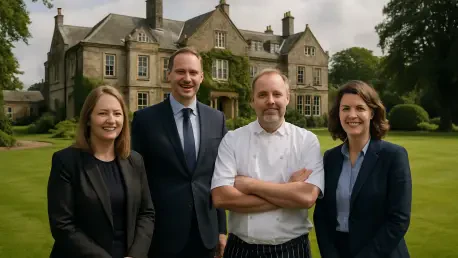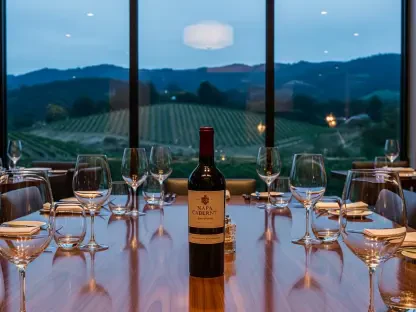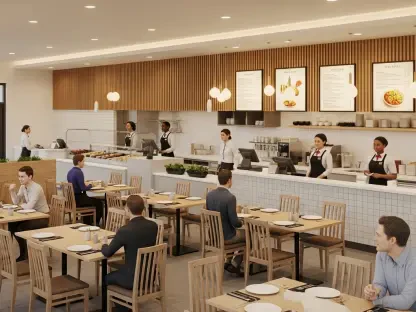I’m thrilled to sit down with Katarina Railko, our esteemed hospitality expert, who has honed her skills in the travel and tourism industry. With a deep passion for entertainment and events, Katarina is a prominent voice in the field, often sharing her insights at expos and conferences. Today, we’re diving into a conversation inspired by the recent appointment of a new General Manager at a renowned Yorkshire estate. Our discussion will explore themes like the unique appeal of destination hotels, the importance of leadership in hospitality, strategies for enhancing guest experiences, and the celebration of local culture through cuisine and partnerships.
What is it about a leadership role at a destination like a country estate hotel that you think draws seasoned professionals in the hospitality industry?
I believe it’s the opportunity to create something truly memorable. A country estate hotel, especially in a stunning location like Yorkshire, offers a canvas to blend natural beauty with exceptional service. Professionals are drawn to the challenge of managing diverse offerings—from spas to outdoor activities—while shaping a vision that stands out in a competitive market. It’s also about legacy; leading such a property means leaving a mark on a place that’s often steeped in history and community significance.
How would you describe the unique elements that make a hotel or estate a standout destination for guests?
It’s all about the experience. A standout destination offers something you can’t replicate elsewhere—whether it’s a world-class spa, breathtaking landscapes, or a deep connection to the local culture. It’s the little details, like personalized service or curated activities, that turn a stay into a story. For guests, it’s about feeling immersed in the place, whether through unique on-site experiences or dining that reflects the region’s flavors.
Drawing from your extensive experience, what are some key skills or lessons a leader needs to bring to a role at a high-caliber hospitality venue?
Leadership in hospitality is about balance—balancing operational precision with a genuine care for people, both staff and guests. One key skill is adaptability; every property has its own rhythm, and you need to read that quickly. Another is fostering a team culture where everyone feels invested in the guest experience. I’ve learned over the years that listening—really listening—to feedback from all sides helps you anticipate needs and innovate effectively.
How do past roles at notable properties shape a leader’s approach to managing a new venue with its own distinct identity?
Past roles are like a toolbox; each experience adds a new strategy or perspective you can draw on. For instance, managing a property during a major change, like a renovation, teaches patience and how to maintain guest satisfaction under pressure. But it’s crucial to adapt those lessons to the new venue’s unique identity. A leader must respect the history and ethos of the place, using past successes as inspiration rather than a strict blueprint, ensuring the approach feels authentic to the property.
When it comes to elevating guest offerings, what are some initial steps a new leader might prioritize at a destination known for diverse experiences?
First, I’d focus on understanding what guests already love about the place—whether it’s a signature activity or a particular dining experience—and build on that. Then, I’d look at small, impactful enhancements, like refining the flow of activities or adding personal touches to service. It’s also about consistency; ensuring every touchpoint, from check-in to check-out, feels seamless and special. Gathering direct feedback from guests early on can guide where to invest energy and resources.
How can a hotel champion local culture, especially through cuisine, to create a deeper connection with its region for visitors?
Celebrating local culture through food is powerful. It’s about showcasing regional ingredients and dishes that tell a story—think farm-to-table partnerships or menus inspired by traditional recipes. Beyond the plate, it’s curating experiences that reflect the area, like events with local artisans or guided tours of nearby landmarks. Working closely with local suppliers not only enhances authenticity but also builds community ties, which guests can sense and appreciate.
What does it mean to you for a hotel to position itself as the ultimate one-stop destination in a specific region, and how can leadership help achieve that vision?
Being a one-stop destination means offering everything a guest could want under one roof—relaxation, adventure, dining, and cultural immersion—so they don’t feel the need to look elsewhere. Leadership plays a huge role by ensuring every element works in harmony, from seamless booking to staff who anticipate needs. It’s also about constant evolution; a leader must keep innovating to stay ahead, whether through new experiences or upgraded facilities, to maintain that ‘ultimate’ status.
What’s your forecast for the future of destination hotels in regions like Yorkshire, especially in terms of guest expectations and industry trends?
I think destination hotels in places like Yorkshire will see growing demand for authentic, immersive experiences. Guests are increasingly seeking stays that feel personal and connected to the locale—think hyper-local dining or eco-conscious practices. Technology will also play a bigger role, from streamlined bookings to personalized recommendations. But at the core, the human touch will remain key; people will always crave genuine hospitality, and hotels that balance innovation with warmth will thrive.









